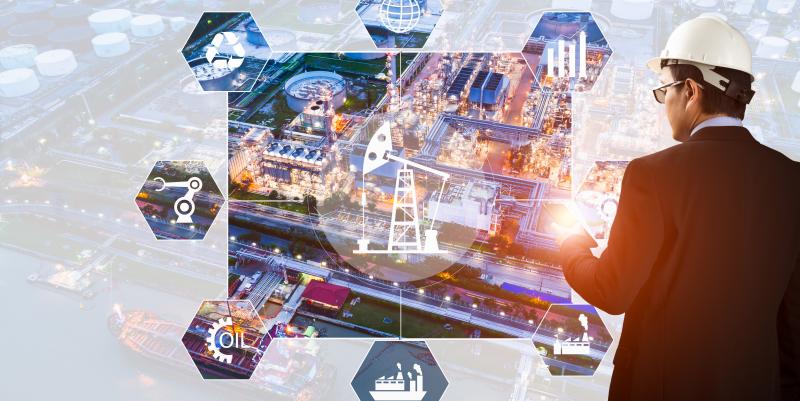Contents
Key facts:
Ecopetrol uses the blockchain to improve processes within the supply chain of the oil.The technology development plan the company will require an investment of USD 120 million.The state oil company of colombia, Ecopetrol, has set in motion a plan for digital transformation, which involves the use of blockchain for the improvement of processes in the supply chain of oil and gas. They also have plans in the near future to use this technology for the provision of information to communities and stakeholders on the development of pilot projects on non-conventional, such as fracking (a technique that allows you to increase the levels of oil and gas extraction from the subsoil).The information was released by the president of Ecopetrol, Felipe Bayon, who in the framework of its presentation in the II Summit of Oil and Gas that was held from 13 to 15 November in the city of Bogotá, Colombia, revealed some data about the project.
In Ecopetrol, we are making that technology and innovation will become the core of our transformation. The goal is to make our processes more efficient and to have strategic information in an orderly and timely manner to deliver best results to our shareholders and to all colombians.Felipe Bayon, president of Ecopetrol
The plan of the digital transformation of Ecopetrol is aligned with an efficiency program and a strategy that the company has been developing since last year. According to Bayón, in its first phase the project requires an investment of USD 120 million in 10 projects of strategic areas that build on the technologies that make up the Fourth Industrial Revolution, which includes platforms based on blockchains, artificial intelligence, the Internet of Things ( IoT) and Big Data, among others.The company is already making use of some of these technologies for the improvement of many processes, in accordance with previous statements of the vice president, digital Ecopetrol, Ernesto Gutiérrez de Piñeres. About it, said that it has incorporated the chain of blocks to optimize the different phases within the supply chain of oil and gas.Therefore, the use blockchain facilitates the task of identifying in what position within the logistics chain to move the goods that are transported from the oil wells until you reach to the end customers.Although the information does not provide further details on this process, possibly the national oil company of Colombia follow the line of action of other large oil companies, like BP, Shell, Statoil, among others, that use blockchains to make transactions in the industry. This allows them to reduce costs, save time, and keep a record most transparent of all the movements that are performed in the supply chain, avoiding the risk of committing errors.Gutierrez added that they also have 40 robots and virtual assistants that enable better management of key processes and are working on 18 additional solutions of this type, so expect to close the year with about 100 working.The project of digital transformation also includes the development of more than 40 initiatives for automation of processes and technological solutions productivity for the daily work. These investments will allow savings estimated between USD 240 million and USD 360 million by 2023, according to estimates of the oil.
Fourth Industrial Revolution in Colombia
The incorporation of blockchain within the oil industry in colombia can be linked with a strategy developed by the government of that country, seeking to position itself in the region as a leader in the management of new technologies.Last April it was opened in Medellin, the first Center of the Fourth Industrial Revolution of Latin America, which will focus on research and development around areas such as artificial intelligence, internet of things technologies and blockchains.There are three new technologies that are “changing the world”, as expressed at that time the colombian president, Ivan Duke, who emphasized its advantages by noting that the Artificial Intelligence will help understand the global phenomena and to apply them in the country and in the region, the IoT will be key to bet on the connectivity, and blockchain can lead to Colombia “to become the leader in Latin America.”

